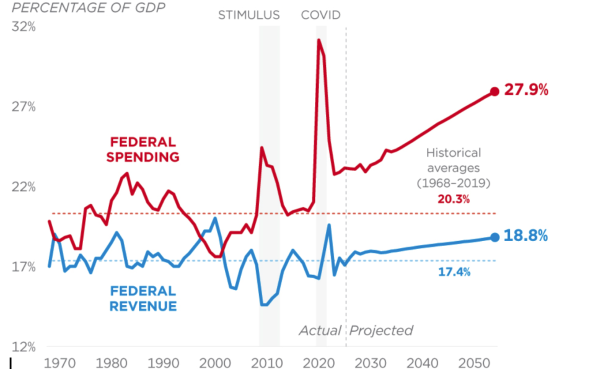New AP U.S. History curriculum change generates controversy
The new changes made to the AP U.S. History curriculum this year have caused quite a stir. This fall, College Board designed a new course structure for AP U.S. History. The new curriculum is intended to shift student focus towards more relevant and up-to-date topics in the subject area. Formerly, the course consisted of 12 main themes and 28 periods. The revised curriculum now contains only seven overarching themes, but includes new sections of key concepts and historical thinking skills. These are combined with each other to ultimately make up the learning objective. The key concepts are made up of nine periods, with three concepts per period. Historical thinking skills refer to ways that historians investigate and reason about historical phenomenon.
Along with the changes to the AP U.S. History curriculum come amendments to the AP exam. While the document-based question (DBQ) portion will remained unchanged, the multiple-choice section will be significantly shortened to allow for more open-ended questions, such as short-answer questions and long-essay questions. The old exam included 80 multiple-choice questions, 1 DBQ, and 2 free-response questions. The upcoming exam will incorporate a greater variety of questions: 55 multiple-choice questions, 4 short-answer questions, 1 DBQ, and 1 long-essay question.
“There has been an effort to allow students to choose from a wider variety of angles, and the belief is that students need to be assessed on their ability to analyze things and integrate multiple sources,” said John Monahan, AP U.S. History teacher at Westminster. “They will develop the skills that a historian needs, not just the memorization of certain content, which is a little less relevant in the age of the Internet.”
One of the big controversies surrounding this subject is whether it is more liberal biased. Because the new curriculum embodies greater discussion around topics such as sexism, racism, and inequality in American history, many have associated it with the term “liberal,” which has become identified with base voting groups of the Democratic Party. Putting emphasis on these issues means that minority groups will be discussed in greater detail, and take up more of the multiple-choice questions that were previously about great white men of American history such as Abraham Lincoln and George Washington.
APUSH teachers at Westminster expressed their thoughts on this dispute. Brooks Batcheller believed that the argument could go both ways (either leaning towards liberal or conservative) and anyone could potentially be upset by the changes.
“One can argue that it’s more liberal because they’re doing more to increase the identity of, and particularly expanding racial history beyond just African Americans, to include all racial groups,” said Batcheller. “On the other hand, it may be much more conservative because the curriculum is retaining focus on the American Revolution, while emphasizing on going past Vietnam, the New Right, and Ronald Reagan.”
Monahan acknowledged why people may perceive the curriculum as liberal and regard it as a negative change as the term liberal has developed a negative connotation with the public because many people think of hippies in the 1960s with alcohol and sex drives as the stereotypical liberal image. However, he voiced his dissent with this kind of mindset.
“It is true that the test offers a deeper, richer study of the non-white, non-men groups. That is a good thing, and we should be unapologetic about that,” said Monahan. “In general, there is nothing conservative liberal or conservative, but rather it is about being honest about American history,”
Some argue that the real problem is not how liberal the new curriculum is. The real problem is that the new APUSH curriculum fails to inspire as much patriotism as it used to. In other words, some conservatives describe the new course structure as anti-American. Many are infuriated with the course’s integration of more content on minority groups and exposure to the ugly, darker sides of American history. In contrary, Westminster teachers present a different, less cynical view, and think the revisions can be seen in a positive light as well.
“On the surface, I think that certain moments can look unpatriotic, but if you can make the founders look like real people, then they suddenly became more attainable. If we realize that these weren’t amazing human beings but regular people that did tremendous things in the world, then all of us realize the potential we have to generate positive change in the country,” Batcheller said. “I understand why people say it is unpatriotic initially, but I hope they can inculcate that deeper lesson.”
Monahan also articulated his disagreement with the claim that the new curriculum discouraged patriotism. He feels that zooming in on the seemingly controversial subjects should do the opposite of what critics declare it to.
“The more inclusive we are with who we study, the more it will motivate those people to perceive America as a country in which they have ownership stake,” Monahan said. “And more people perceiving America as their country – that’s definitely more patriotic, not less.”
History teacher Joe Tribble gave his opinion on this subject as well. He advocates for a curriculum that tells the complete story of America, and not the current one that cuts out many important parts such as the Founders, the War for Independence, and the U.S. military.
“If I could change what is taught, it would simply be to return to telling the story of the USA – the good, the bad, and the ugly,” said Tribble. “It is a great story, the greatest of any nation in history, and it is our own: we fail to teach it at our peril.”
Regardless of how liberal or conservative, or how patriotic or unpatriotic the restructured curriculum is, Westminster teachers believe that the most important aspect of the course is what it accomplishes for the student. Whether it is writing about historical events or analyzing an important document, the course should be able to provide preparation for the future lives of students.
“We are doing a lot to train the next generation of citizens,” Batcheller said. “We have taught students to think critically of the past, to use it as a barometer, a measuring stick, and guide to issues that are going on in the present, while still understanding their own crucial role in transforming history in the present and future.”
Students enrolled in this course at Westminster also suggested similar ideals and opinions as their teachers regarding the controversies. Many agree that the teacher for the course may determine if the content was communicated in a liberal or conservative sense.
“Teachers who are grounded in strong, conservative political ideas will, whether they intend to or not, teach their class from a more conservative viewpoint,” said senior Maia Young. “So far, I think my teacher has been presenting a lot of our curriculum from a more liberal standpoint, but it may still be too early for me to really tell.”
Several gave corresponding statements, but thought that the content itself should not be labeled as liberal.
“I feel like the content is very balanced in its focus of different groups,” said senior Alex Foote.
Although critics argue that much of the material inspires anti-Americanism, students found it better and more realistic to see the full picture of American history. The students, along with their teachers, believed that their current curriculum actually inspires more patriotism.
“I think America at its core is all about diversity and people trying to find new beginnings from wherever they came,” said senior Annabel Shu. “And if you don’t represent that then you’re representing a lie. I don’t think it is less patriotic at all.”
Foote also relayed her appreciation for being exposing to all the things that occurred in U.S. history, not just the glory and victories. The new course content makes it easier to identify and connect with the United States.
“I like that the content includes the darker sides of American history and doesn’t have Americans out to be perfect or justified in every situation,” said Foote. “I appreciate the honesty.”
There have been many conflicting views on this subject, as the change in the AP U.S. history curriculum has caused a great stir. Because this is the first year with the new curriculum, the scores for the May exams may be the determining factor for how effective the revisions are.




